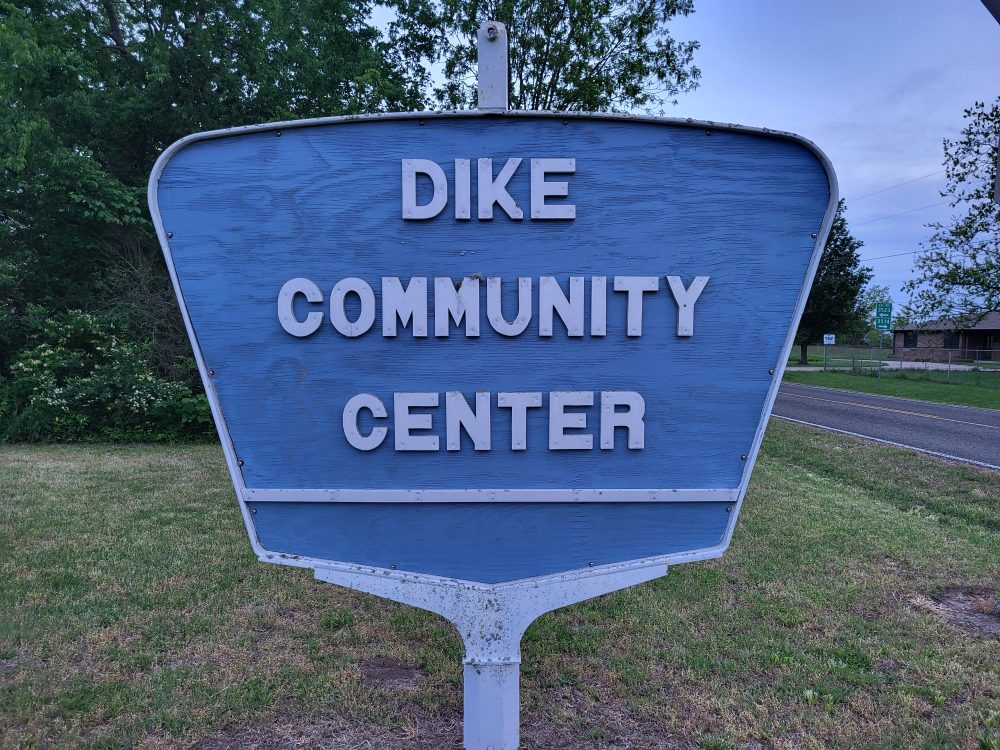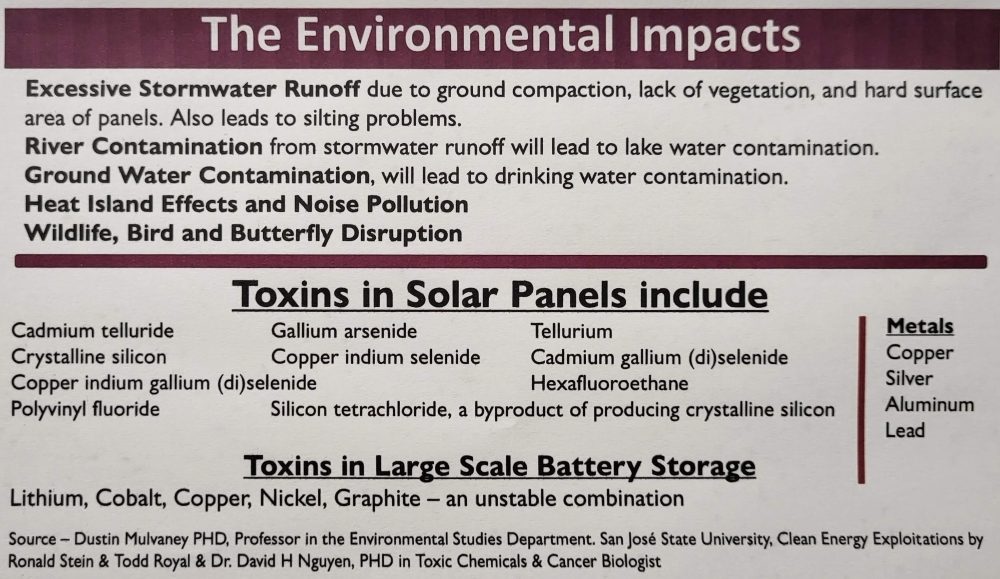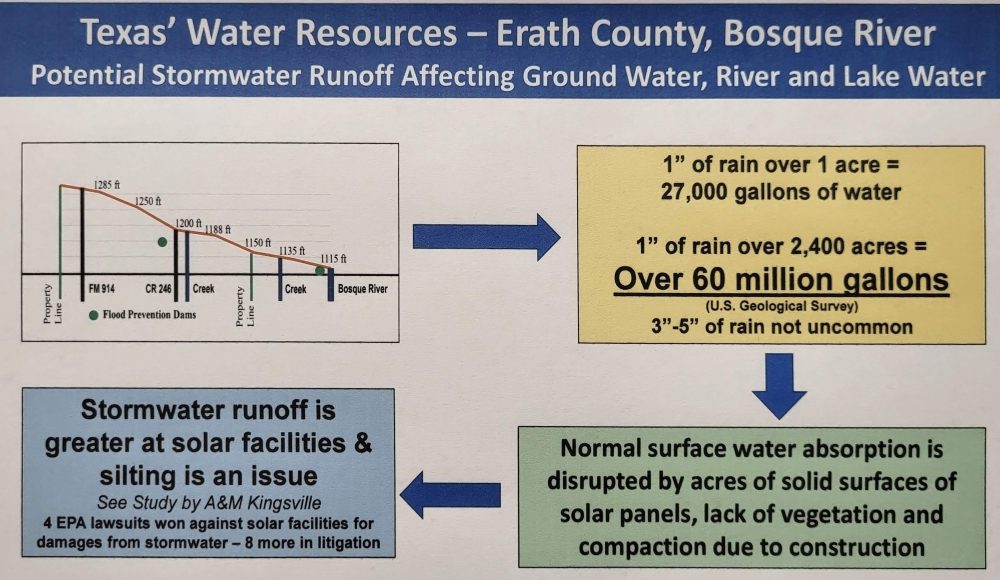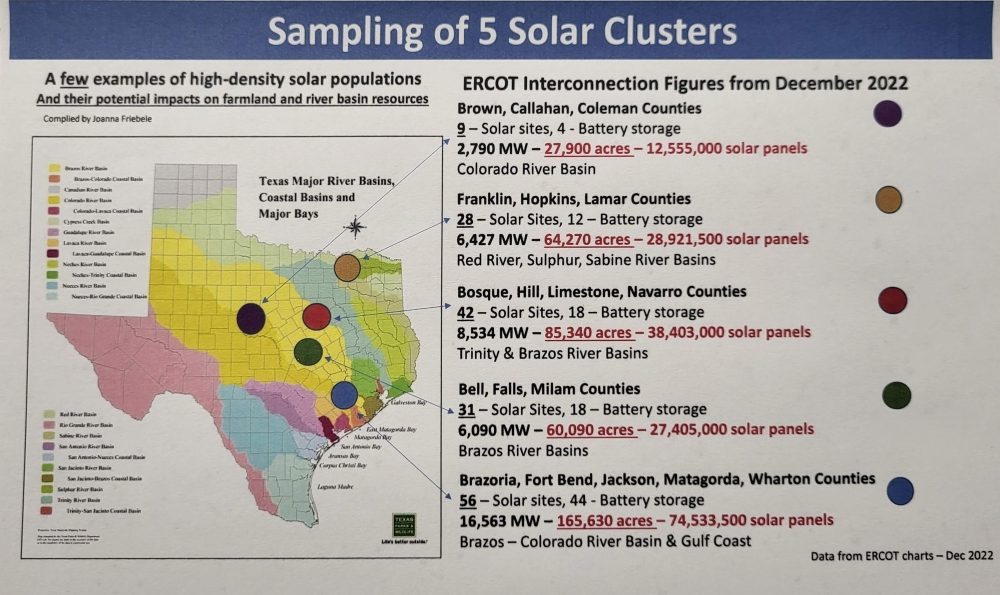April 25, 2023 – On Monday night, speakers with first hand knowledge of the effects that Solar Power Plants can have on all aspects of rural life in Texas spoke at a meeting held at the Dike Community Center. Andy Ivey and Joanna Friebele spent about two hours talking with Dike Community Members, and at least ten people from Franklin County who are fighting their own Solar Power Plant.

One of the points made by the speakers that caused the most reaction from the crowd was that Solar Companies are not really interested in generating electricity from solar: they are most interested in gobbling up Tax Incentives and other Government Provided Funds. “The want that Chapter 313. Their business model make sure they make money.. significant money before they ever produce their first watt.”
The also talked about the fact that Solar Companies can sell the project at any time, effectively nullifying any contracts made. “If that happens, when it happens, the land owners can be left holding the bag. Their land, now full of equipment that belongs to a LLC, owned by another LLC, will be filling their land. And that land will no longer be eligible for Ag Exempt Tax status. In that instance, the only possible good thing for the land owners is that the land values in that area (around a solar plant) usually take a huge plunge.”
“Solar Power Plant Companies target absentee landowners in rural areas. They don’t attempt to get leases from family farmers and ranchers that actually care about the land. They pursue people that own land but live elsewhere, it makes their job easier.”
The same question from attendees came up several times during the meeting. People wanted to know who they could sue for potential violations and damages. Speakers revealed the hard truth that Solar Power Plant companies insulate themselves from litigation by stacking LLC companies. “Several LLC’s stand between the company, and the actual business that sits on your property. And each one takes no responsibility for the next one. These LLC’s often don’t even have assets on the books, but instead contain liabilities.” Their consensus was that a landowner has little to no chance of winning a lawsuit against these companies.
There were a few partially positive avenues for people to pursue. They focused around elections and politics. “Solar Power Plants are the ‘darling’ of renewable energy right now. We have to spread the word about what they truly do to the environment, and what these companies do… and make Solar Plants so politically toxic that no politician would touch them.”
Another route that has been successful is reporting negative environmental impact to the EPA. Soil tests confirming heavy metal leaching into waterways and adjacent properties and reports of soil erosion and flooding have been had some impact on Solar Power Plants. “When it comes to soil test, make sure you work with someone like your County Agent. These companies will argue that the samples are from another area, or are invalid for other reasons. Don’t just go and submit your own samples. You need to document them.” Speakers reminded the meeting participants that even a million dollar fine would be the cost of doing business for these companies.
A few participants were concerned about fires and a rise in homeowners insurance rates for people living around a Solar Power Plant. Power Plant fires seems to be rare at this time. Most rural volunteers fire departments have no way to obtain the special equipment required to fight a lithium battery fire. “You won’t be able to sell enough fried catfish to purchase breathing equipment and foam. You will have to keep your people back and let the fires burn.” As for insurance costs, they have not yet begun to rise. “Public perception is still very rosy when it comes to Solar Power Plants.”
Below are handouts provided by the speakers:








